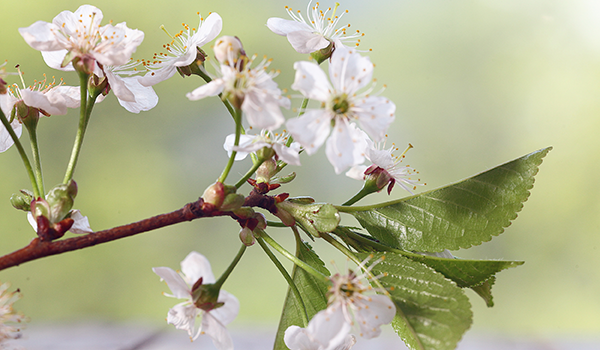April 13, 2023
If Spring Were a Poem …

By Julie Gregory, Chief Health Liaison for Apollo Health
She would be a haiku. Short, enlightening, and transformational. We finally emerge from the long, dark winter into a glorious explosion of new life, only to quickly settle into the hot, lazy days of summer. In honor of International Haiku Poetry Day on April 17th, I’m going to explore the healing potential of poetry.
Literature and poetry have a long history of providing therapeutic value. In fact, the ancient Greeks referred to libraries as “healing places of the soul.” The Greek philosopher Aristotle wrote extensively about the cathartic potential that could be found in poetry. He asserted that it helped the writer purge built-up emotions. He also spoke about how it helped to bridge the conscious and unconscious world. Sigmund Freud, the father of psychiatry, expanded on this idea by writing, “Not I, but the poet discovered the unconscious.” He often used symbolism, widely used in poetry, to help express buried or abstract thoughts.
Poetry has long been used as a healing modality for many populations, including those with Alzheimer’s. Many who are affected have difficulty both remembering and expressing themselves with language, but they are able to memorize and recite rhymes. This is likely because of the sing-song quality that allows their speech to flow easily and can even evoke memories long buried. After my mother’s recent hemorrhagic stroke (see CAA: Notes from the Frontlines), her cognition was deeply impacted, and she lost her ability to speak fluently. She was diagnosed with expressive aphasia that caused her to stumble and stutter through every sentence, searching for the correct words leading to tremendous frustration. While she was still in the Neuro ICU, I found a seasonal children’s picture book, “Away in the Manger,” in the hospital’s gift shop. I wanted to see if she could still read. Of course, she was familiar with the Christmas carol, with its beautiful rhyming cadence. She fearfully and quite skeptically picked up the book and began to slowly recite the words. She tremulously read the entire poem perfectly to me, her voice growing stronger with each line. We both had tears streaming down our faces. It was the first glimpse of hope for future healing.
Writing poetry is another form of therapy. It allows us to express ourselves in a way that we may not be able to do with everyday conversation. There are so many strong emotions around our healing journeys. We are literally fighting for our lives amidst the backdrop of mainstream medicine, which asserts our quest is futile despite our growing evidence. In many ways, it’s us (our community) against the world. Many of us engage in a daily battle to save ourselves and each other. Sharing the emotions around your journey can be very healing. Using symbolism and metaphors to refer to darker emotions is also a way of providing distance that can enable an easier expression of more difficult topics. Examining your inner thoughts and expressing them is an important part of our healing journeys. Using any creative means to express those emotions — poetry, art, music, or dance — can be enormously cathartic and is an excellent way to both manage stress and stimulate your brain, two of our Bredesen Seven strategies.
Many of you are familiar with haikus from your school days. They’re a simple yet elegant form of Japanese poetry, expressed in three short lines with 17 syllables. The first line and third line have five syllables each, and the third line has seven syllables. A true haiku describes a moment in nature (that can represent something else), is untitled, doesn’t rhyme, uses incomplete sentences, and typically ends with a shift of enlightenment or a new perspective. Below see a haiku I put together, using nature to express our shared journey.
The dark winter fades,
replaced by buds, blooms, and hope.
Together, we rise.
I warmly encourage you to express your feelings in any way that you would like. If writing a haiku seems like an exciting challenge, go for it. If painting a picture, journaling, or dancing feels like a better fit, use that form of expression. The most important thing is for you to take time to explore your inner feelings and express them through any creative endeavor.
I’ve created a forum category (for our Apollo Health community) entitled “Share your Creative Expressions,” where we can all share our feelings and resulting creative pursuits. Participants can find it here and practitioners can find it here.
Poetry can provide a remedy to our fast-paced, modern world. It can serve as a soothing, almost spiritual experience, as it demands to be read and to be written slowly and thoughtfully in order to be absorbed and to express the underlying emotion. It honors our deep philosophical nature that is often neglected in our contemporary culture. Some say that poetry is now becoming extinct in a culture where modern technology is being consumed at an increasing rate. I suggest we bring it back and let the world know we are here.




